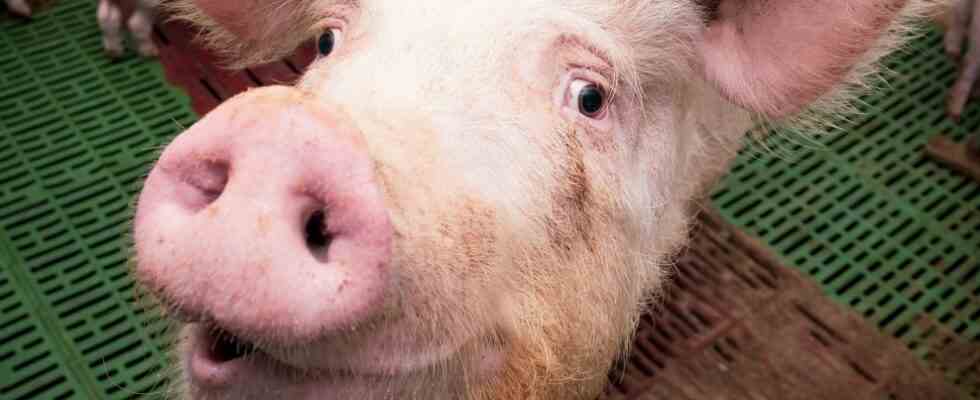Farmer Martin Kandler from Anzing ran a pig farm for over twenty years, with 500 animals at the end. Two months ago he decided to stop for now. The decision was very difficult for him, says Kandler, and after a break: “I actually liked doing it.” The main reason is the increased energy costs, which hit pig farmers particularly hard. These are currently around three times as high. In pig fattening, the barn must be kept warm, fresh air must be constantly supplied and potentially harmful substances must be removed. According to Kandler, these fans are power guzzlers.
While it is getting more and more expensive for the pig farmers, the customers are buying cheap meat
Gradually Kandler has now sold all the pigs, the barn is currently empty. “I still don’t know what I’m going to use the building for,” he says. For the time being, the farmer wants to wait a year to see whether it is worth resuming operations. “I don’t have much hope,” he admits.
Farmers are also hit by the high energy costs from another side: Because the entire population is affected by them, more and more people are reaching for cheaper meat in the supermarket. And that after many farms have changed their husbandry at great expense in recent years to comply with the animal welfare label. The butchers currently pay pig farmers like Kandler two euros per kilo – “That’s far too little,” says the Anzinger farmer. Actually, it should be three euros per kilo that it pays off for him as a pig farmer.
Farmer Martin Kandler from Anzing has given up his pig fattening with 500 animals for the time being
(Photo: Peter Hinz-Rosin)
Farmer Andreas Adlberger, also from Anzing, reports something similar: three years ago he changed his attitude, now the sales figures for pork are declining. “I have the advantage that I have permanent butchers and businesses who take the meat from me,” says Adlberger. When it came to electricity costs, he was warned early enough and concluded contracts through the Ebersberg machine ring until 2025.
The current crisis hits an industry with many difficulties anyway
Christoph Auer, who advises farmers for the state board of trustees of the producer rings for animal processing in Bavaria (LKV), knows of four companies from Ebersberg and the neighboring districts alone that gave up pig fattening this year. According to Auer, the energy crisis is just the icing on the cake: “It was already difficult for the pig farmers before, the energy costs are not the decisive factor.” Feed costs were also generally increasing, and veterinary requirements were increasing. “Many have a second mainstay and say: I’ll stop with the mast,” says Auer. Public pressure, which has increased more and more in recent years when it comes to animal husbandry, also has consequences: Auer reports that depression and burn-outs are widespread among pig farmers.
The Office for Food, Agriculture and Forestry Ebersberg-Erding (AELF) states that the reduced demand for meat from abroad is also a factor in the difficult situation of pig farmers. This is one of the reasons why the price for piglets has fallen drastically. Compared to the federal state of Brandenburg, however, the Bavarian cattle farmers are even better off: African swine fever raged there last year. “That can still happen with us,” said a spokeswoman. Basically, there is a great deal of uncertainty among farmers; the new Bavarian Animal Welfare Program (BayproTier), which the Bavarian Minister of Agriculture Michaela Kaniber launched at the beginning of the year, is hardly used in the region. “Many farmers would like to invest in better animal husbandry,” said the spokeswoman, “but right now you don’t know where it’s going.”
Martin Kandler from Anzing now keeps about 80 animals on straw – that is, in a barn that does not require constant ventilation. Straw pigs are much more expensive to keep: they need more space, the straw has to be stored in an additional building, and the amount of work is a lot more. So the farmer hasn’t completely said goodbye to the pigs – but: “But that’s more of a hobby,” says Kandler.

